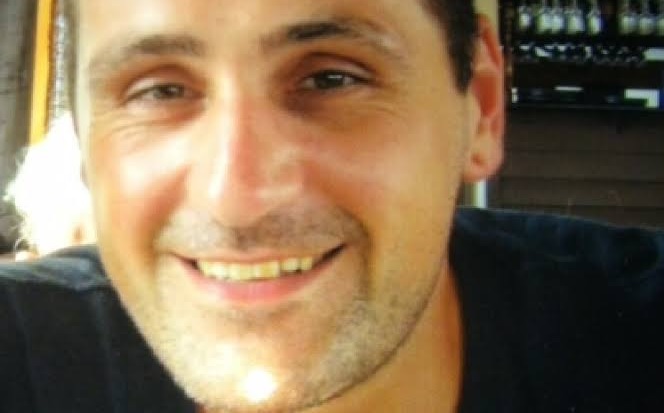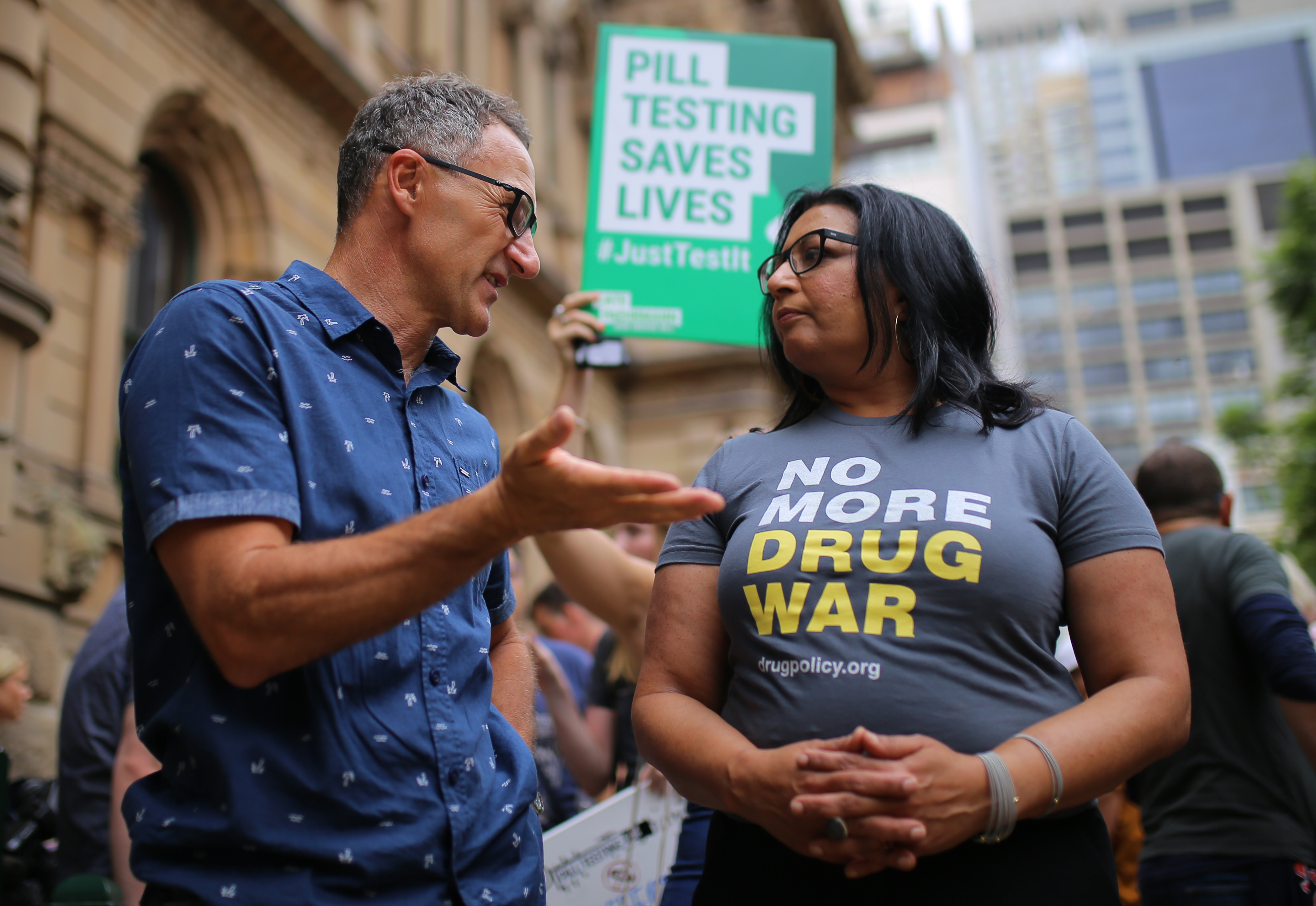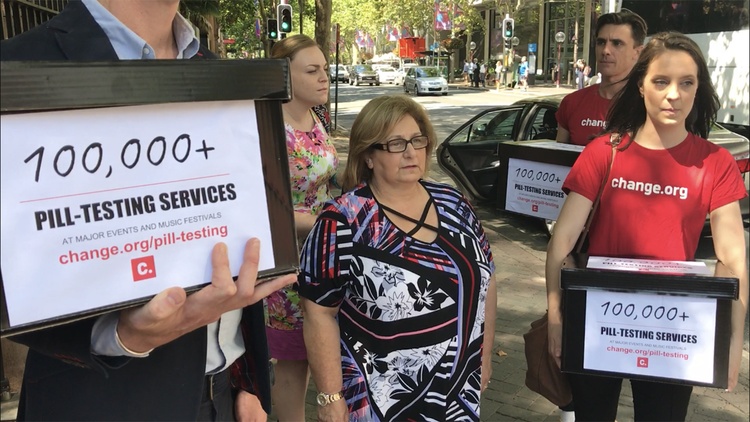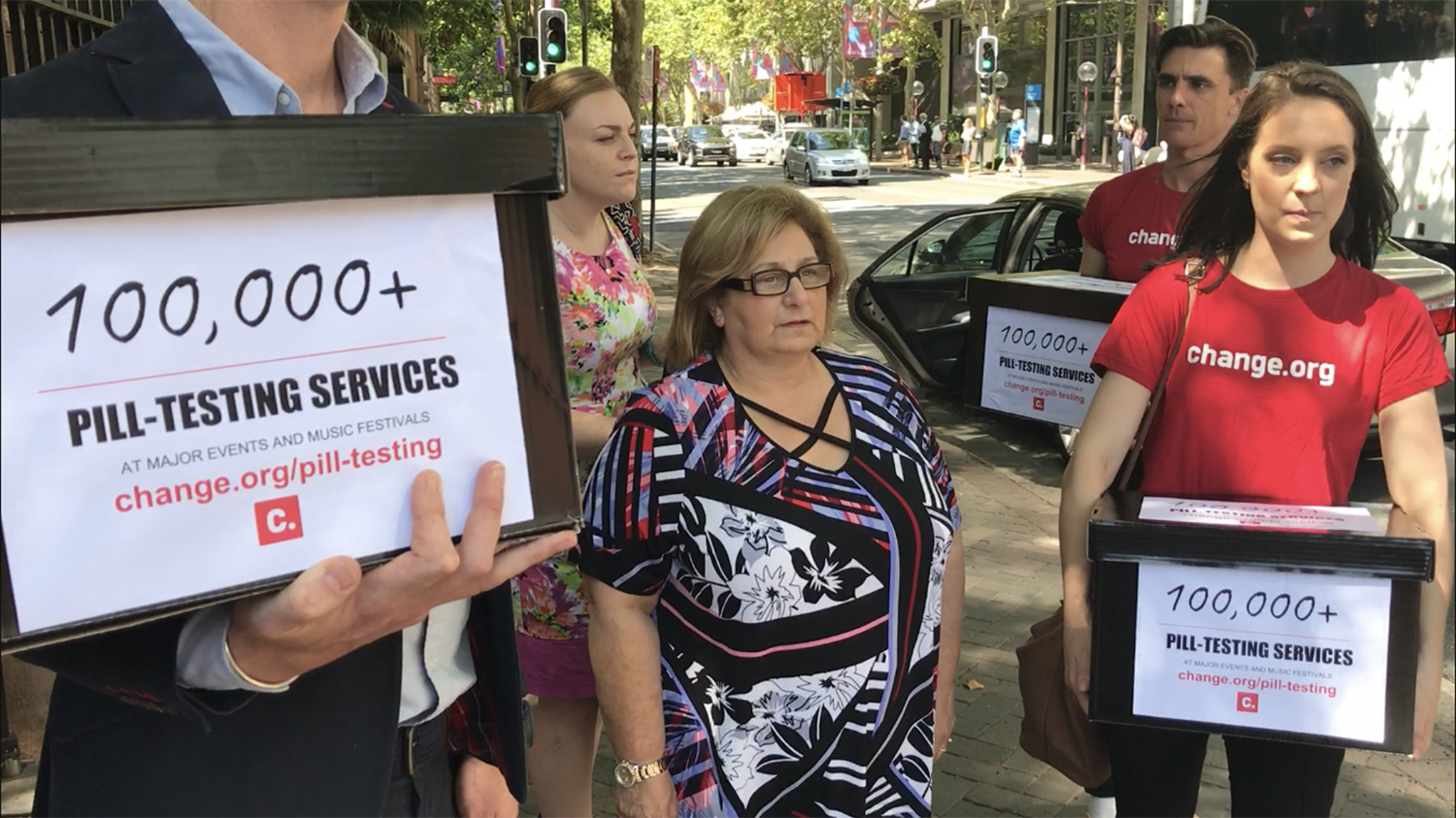Daniel Buccianti overdosed and died at the 2012 edition of the Rainbow Serpent Festival, which attracts thousands of people to remote western Victoria every year.
He was just 34 years old.
In the nine years since she lost her son, Ms Buccianti has fiercely advocated for pill testing in Victoria and across society at large, claiming that Daniel would still be alive if he had known what he was taking.
The events leading up to that day in January 2012 are painfully etched into the Melbourne mum’s memory.
On the Saturday evening of the four-day festival, Daniel had miraculously managed to call Ms Buccianti from the secluded site of the music festival, which generally has poor reception.
His words were: “Mum, mum. Come and pick me up. I’ve taken something that I’ve never taken before.”
Ms Buccianti urged her son to seek help from festival staff and began planning to make her way to the site.
But around 40 minutes later, when she called him again, Daniel had reassured her that he was feeling better.
“Don’t worry, I’m fine,” he had told her.
“I’ve found some friends and they’re going to look after me. Love you, see you on Monday.”
Ms Buccianti would never hear her son’s voice again.
At 8:30 am the next morning, police officers arrived at her home in Epping to tell her that Daniel had been found lying lifeless in a tent after overdosing on a combination of LSD and prescription drugs.
“That was the end of his life and the beginning of my nightmare,” Ms Buccianti said.

Daniel Buccianti. (Photo supplied)
Having never quite felt as though he belonged growing up, Daniel was drawn to the strong sense of community at music festivals in his early 20s.
“The reality is that I always knew that Daniel would take [drugs] when he went to festivals,” Ms Buccianti said.
“But I was always very comfortable knowing that he would only go to a certain point and that he was smart enough not to go over the top.”
While Ms Buccianti initially blamed the organisers of Rainbow Serpent for her son’s death and called for the event to be shut down, she soon came to realise the problem is much greater than one festival; she now believes it is engrained in our society and is fighting for policy and law reforms.
After learning about pill testing through Sydney-based organisation Unharm, Ms Buccianti began campaigning for the cause, which she believes would create a safer society and save lives.
She launched a petition calling for the NSW and Victorian premiers Gladys Berejiklian and Daniel Andrews to allow pill testing at music festivals, which has garnered almost 139,000 signatures to date.
Ms Buccianti delivered the petition to Parliament House in 2018 and the NSW parliament in 2019.
She also offered her opinion at the 2019 coronial inquest into the deaths of six young people aged 18 to 23 in NSW following drug overdoses at music events over two summers.
The NSW coroner recommended pill testing be conducted in the state, though no such measures have been introduced.
Also known as “drug checking”, pill testing is a way to reduce the harm from drug consumption by allowing users to find out the content and purity of substances that they intend to consume.
Ms Buccianti is certain that the measure would have saved her son’s life and hopes that one day it could help prevent more premature deaths.
“Had pill testing been around at the time of Daniel’s death, he certainly would’ve used it,” she said.
“He didn’t go to the festival to come out in a body bag.
“He went there to have a good time and he should’ve known what was in [the drug].
“By the time he realised he’d taken something he’d never had before it was already in his system... it was too late.”
While the Victorian coroner’s inquest into Daniel’s death was followed by a string of recommendations which sought to improve safety measures at music festivals, such events continue to prove fatal year after year.
Not to mention the deaths that occur in private places and don’t make the headlines.
According to a report from the National Drug and Alcohol Research Centre (NDARC), there were 392 deaths linked to MDMA alone between 2000 and 2018.
Only four per cent of those deaths occurred at music festivals.
In a development last month, Victorian Coroner Paresa Spanos recommended the state government urgently introduce pill testing for the first time, after the deaths of five men aged between 17 and 32, who thought they were taking MDMA or magic mushrooms but had ingested a dangerous combination of two new psychoactive substances.
The findings revealed that each of the men had acted erratically after taking the drugs, including headbutting walls and furniture, and experienced hallucinations and paranoia.
One of the men leapt to his death from a 10th-floor balcony at his Melbourne CBD apartment.
“Risk has always existed when obtaining drugs from unregulated markets: for example, the risk that the drug’s contents are not what you believe them to be; the risk that the drug is more potent than expected; and the risk that the drug’s contents are adulterated,” Spanos said.
“If we accept [that] there are unlikely to be any major changes to drug regulation in the foreseeable future, or any changes in individuals’ preparedness to use illicit drugs, Victorians will continue to be exposed to the risks of unregulated drug markets.”
Spanos recommended the Victorian Health Department introduce a drug checking service and an early warning system alerting the public to dangerous drugs that may be in circulation.
The Andrews government has not supported these measures and reiterated on Monday that there were “no current plans to trial pill testing”.
“Any death caused by drugs is a terrible tragedy for our community and we will carefully consider the recommendations in the Coroner’s report,” a government spokesperson said.
“While there are no current plans to trial pill testing, we are committed to reducing the harm associated with alcohol and other drug use, which is why we have invested a record $314.8 million in alcohol and drug services.”
While state premiers have continuously opposed pill testing over the years, there has been growing support for the measure as the country continues to count deaths from illicit drugs.
In Victoria, the Greens and the Reason Party have repeatedly pushed for pill testing, and a parliamentary committee in 2018 recommended a testing trial and an early warning system.

Then Greens leader Richard Di Natale (left) and Greens Senator Mehreen Faruqi are seen during the Reclaim The Streets rally in central Sydney, on January 19, 2019. (Photo: AAP)
In the biggest step an Australian jurisdiction has taken so far, the ACT allowed consecutive pill testing trials at Canberra’s Groovin the Moo in 2018 and 2019 to check for a range of substances and test the purity of drugs.
In 2019, 234 festivalgoers had pills tested, with MDMA the predominant substance identified, followed by cocaine, ketamine and methamphetamine.
Most were expecting MDMA but the drug was relatively pure in only 67 per cent of cases.
The measure potentially saved the lives of at least seven people, who dumped their pills after finding out they contained deadly chemicals linked to mass overdoses overseas.
Across the pond, New Zealand’s government made pill testing permanent in April, after trials proved to have had an impact on drug-taking behaviour.
In its decision to legalise pill testing, the NZ government cited the findings of the Victoria University of Wellington’s Final Report into Drug Checking at New Zealand Festivals.
The report found that 68 per cent of those surveyed who had used the KYSNZ pill testing service reported having changed their behaviour afterwards.
Some people threw out the drugs that had been tested, others reduced the amount they took and almost 87 per cent said they better understood the harms of taking drugs after talking to the testing team.
While the biggest argument against pill testing is that it condones or encourages drug use, Ms Buccianti said the measure is a deterrent rather than a reinforcement.
“The reality is that people take drugs,” she explained.
“If you had pill testing it would give people an opportunity to make informed decisions.
“There’s a responsibility attached to those who are testing the drugs; they need to have a discussion and inform people.
“I can tell you now that if someone had spoken to Daniel, he wouldn’t have [taken the drugs].”
Ms Buccianti visualises a holistic approach in which pill testing is paired with the involvement of professionals such as health care workers, psychologists and social workers to increase awareness and educate people on the risks associated with taking drugs.
She believes this would be the first step to decriminalising and taxing illicit drugs so that they are manufactured under strict regulations to control both the contents and strength, much like cigarettes and alcohol.
“The opportunities are endless to make this work if only people in power would sit and think about it and say that this is a social issue that needs to be dealt with,” Ms Buccianti concluded.
“How many more deaths do they want to see?”












